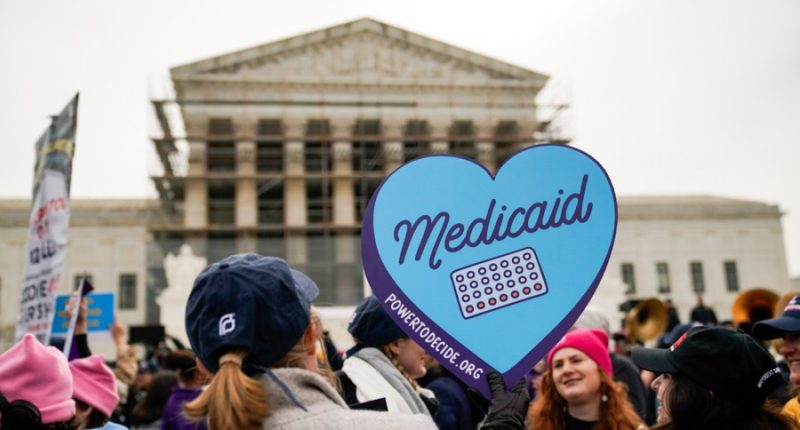Share this @internewscast.com

The Supreme Court on Thursday ruled for South Carolina in its effort to cut off Medicaid funding for Planned Parenthood, ruling individual Medicaid patients cannot sue to enforce their right to pick a provider.
In a 6-3 decision along ideological lines, the court sided with the state, which was backed by the Trump administration. However, the lawsuit was not about abortion access, but whether a Medicaid beneficiary has the “right” to pick their preferred health provider and sue if they can’t.
The law says that “any individual” insured through Medicaid “may obtain” care from any qualified and willing provider.
Justice Neil Gorsuch wrote for the majority that Medicaid recipients do not have the right to sue to enforce that provision.
In a statement Thursday, South Carolina Gov. Henry McMaster (R) praised the ruling.
“Seven years ago, we took a stand to protect the sanctity of life and defend South Carolina’s authority and values – and today, we are finally victorious,” he said.
The ruling paves the way for the state to prevent Planned Parenthood from receiving funding through Medicaid. The ruling only applies to South Carolina, where abortion is already outlawed after six weeks of pregnancy, but could be a template for other states.
Texas, Arkansas and Missouri already block Planned Parenthood from seeing Medicaid patients, and the organization has said it expected many other Republican-led states to do the same if the Supreme Court sided with South Carolina.
Medicaid is prohibited from paying for almost all abortions, but states want to cut government funding for other services Planned Parenthood provides as well.
The case centers on a 2018 executive order from McMaster that ordered the state’s Department of Health and Human Services to deem abortion facilities “unqualified” to provide family planning services under Medicaid.
Planned Parenthood operates two clinics in the state. It provides nonabortion services, including cancer screenings, annual physicals, birth control, and testing and treatment for sexually transmitted infections. But McMaster’s order said that because Planned Parenthood was also an abortion provider, it shouldn’t get taxpayer funds.
South Carolina said the money Planned Parenthood receives for providing other health services “frees up their other funds to provide more abortions.”
Planned Parenthood and one of its patients sued, claiming the order violated federal law that allows Medicaid patients to get care from any qualified provider of their choice.
A district court blocked the order from being enforced, and the case split multiple appeals court circuits.
The case made it to the Supreme Court twice previously.
The justices declined to take it up four years ago but last year sent the case back to an appeals court in light of a separate case in which the Supreme Court ruled that nursing home residents whose care was paid by Medicaid could sue a state-owned health care facility over alleged violations of civil rights.
The U.S. Court of Appeals for the 4th Circuit then ruled unanimously in favor of the plaintiff. South Carolina appealed that decision to the Supreme Court.
Updated at 11:15 a.m. EDT











